@import url(https://www.blogger.com/static/v1/v-css/navbar/3334278262-classic.css);
div.b-mobile {display:none;}
Early in my freshman year studying photography at Tisch my class was taken into our small library and shown a selection of rare photo books, which were normally held under lock and key. Amongst those we saw was Jim Goldberg's Rich and Poor. At the time I strongly believed I was going to become a documentary photographer and this book profoundly affected me from the first moment I flicked through it- to such a degree that I immediately went home and bought it for over $100 on eBay, quite a huge amount for a college student. Goldberg spent several years photographing in both transient hotels and expensive mansions in San Francisco, starting in 1977 when he was still in art school. After photographing and contacting his negatives, he would return to the subjects and interview them. In his essay in Rich and Poor, he discusses how the questions he asked changed as his perceptions of those he was photographing evolved- Goldberg describes how he went from "collaborat(ing) in creating a myth of noble poverty" when photographing the poor to seeing them as "angry, impotent, bitter, desperate people." His feelings on the rich also underwent a certain amount of adaptation. With the final quotes chosen from his interviews, Goldberg would return and have the sitters write them on the final prints. These photos are seen to "reveal his subjects' innermost fears and aspirations, their perceptions and illusions about themselves, with a frankness that makes the portraits as engrossing as they are disturbing" (Magnum). Goldberg never claims that these images are objective, as he can be seen as much as an editor as a photographer, but they do enhance our understanding of American culture in that era by exposing "people's perceptions and rationalizations about their lives" (Rich and Poor). I've scanned some of the most interesting photos from both sections- the quotes are often heartbreaking, exposing an understanding of the complete void of meaning in the lives of the sitters from both groups.
POOR
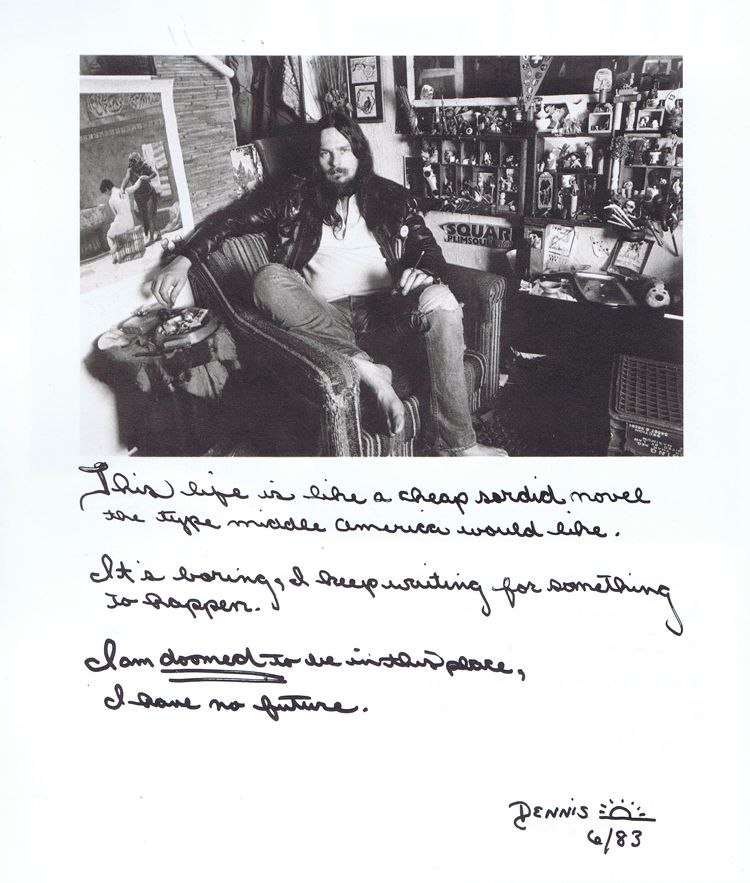
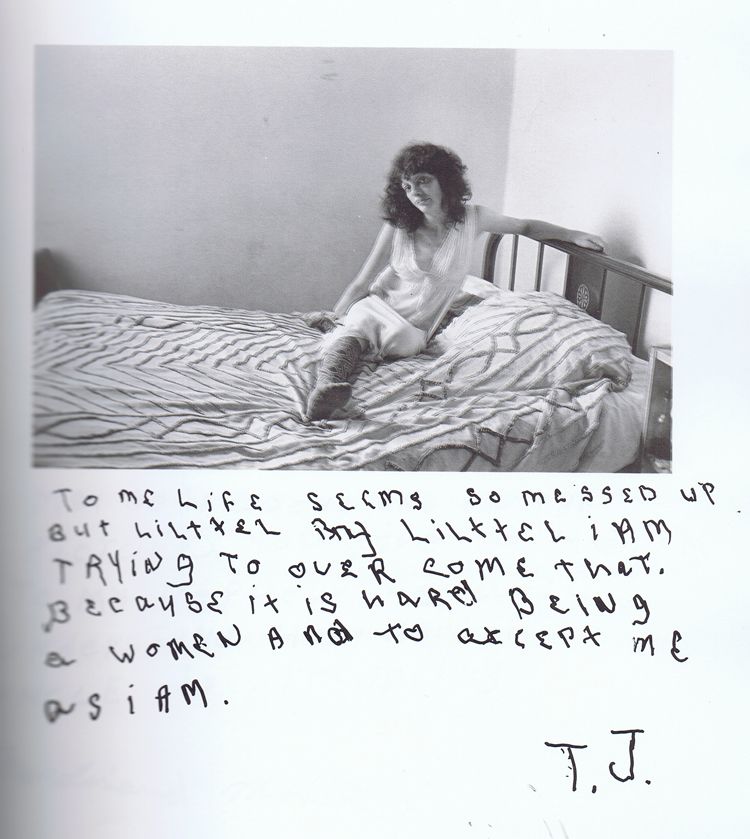
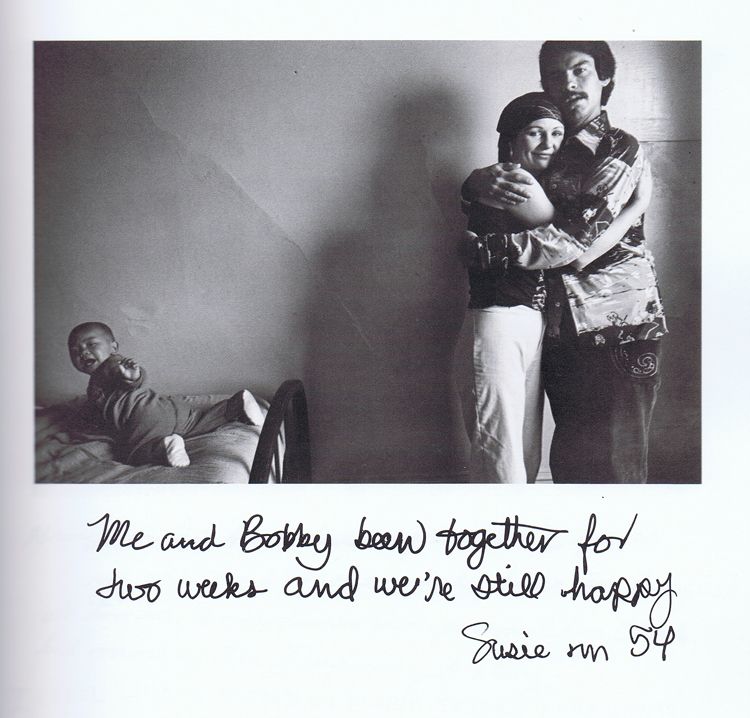
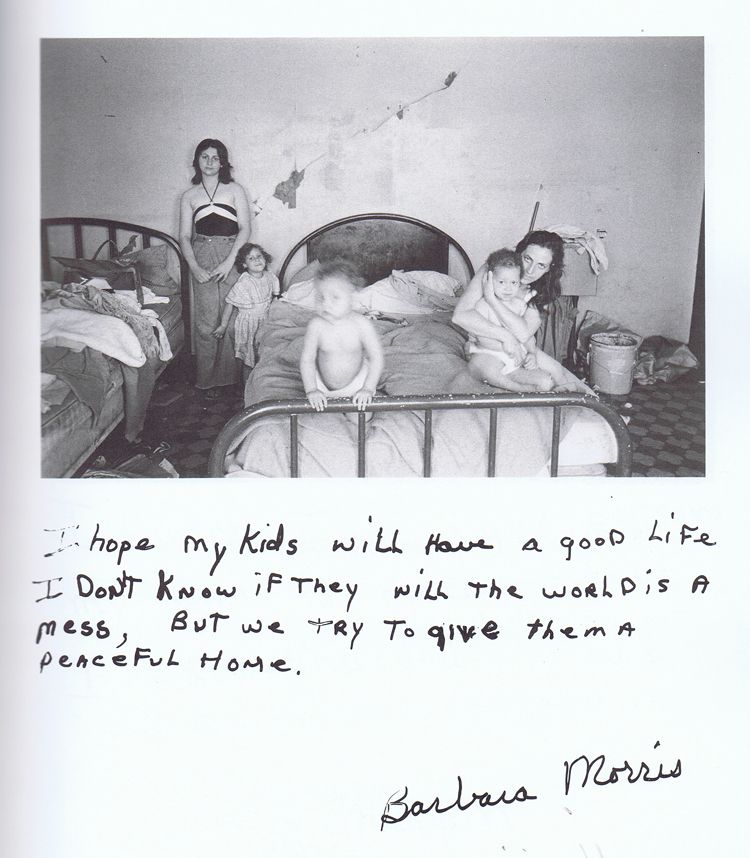
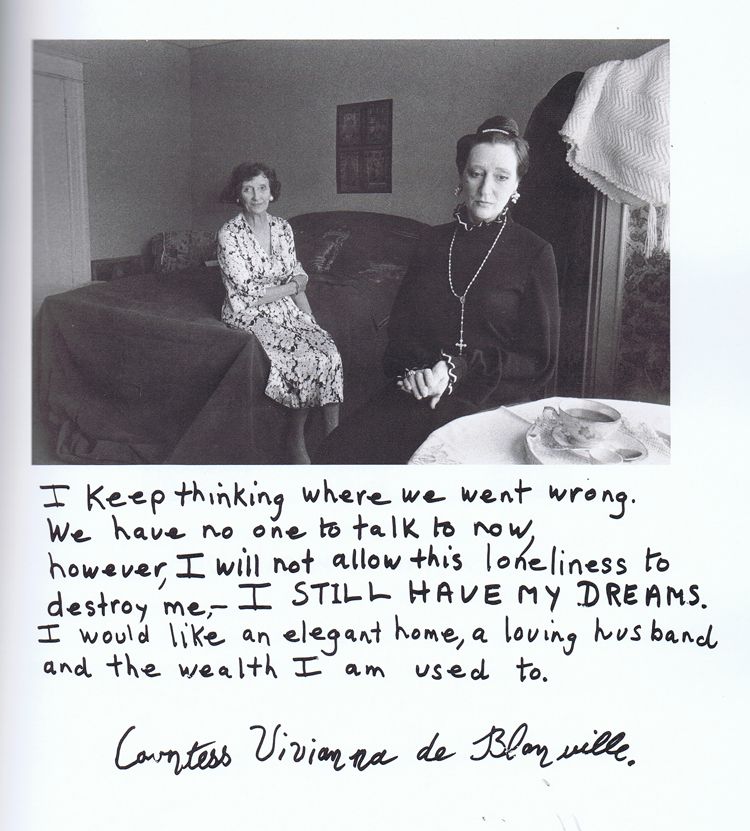
RICH
"I came to understand the mask that servants have to wear in front of their bosses, the power of money to dehumanize human relations. As with this I sensed the deeper manifestations of false superiority that this society encourages (through the institution of class), the repression of feelings, the distance within nuclear families which the good life and materialism were supposed to decrease. I saw that power based on wealth crippled people in the most human ways, that the sugared rationalization that the money wouldn't get the best of them was a myth. The accumulation of wealth led to more complex lives and then to a desire to simplify. And to a selfishness that comes from the fear of losing all that one has worked so hard for or been given."
Servant:
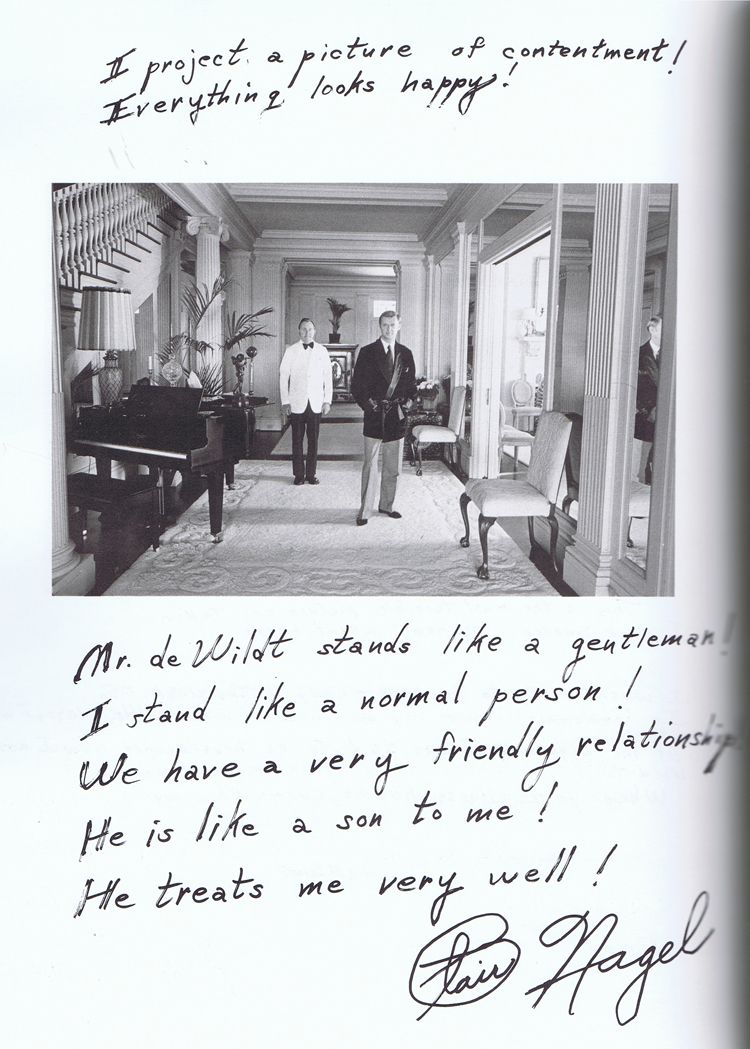
Master:
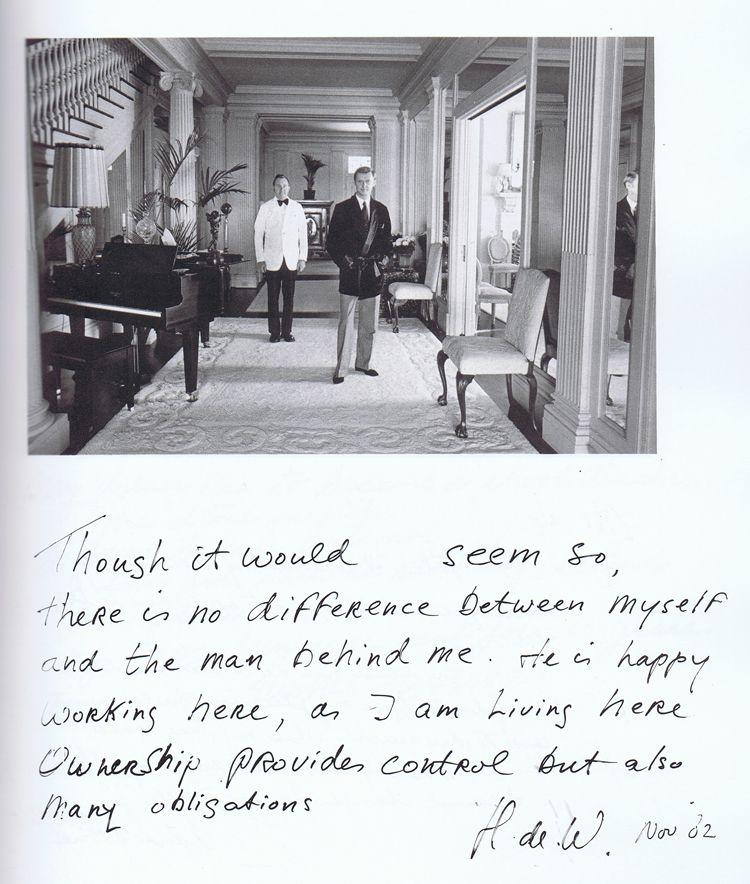
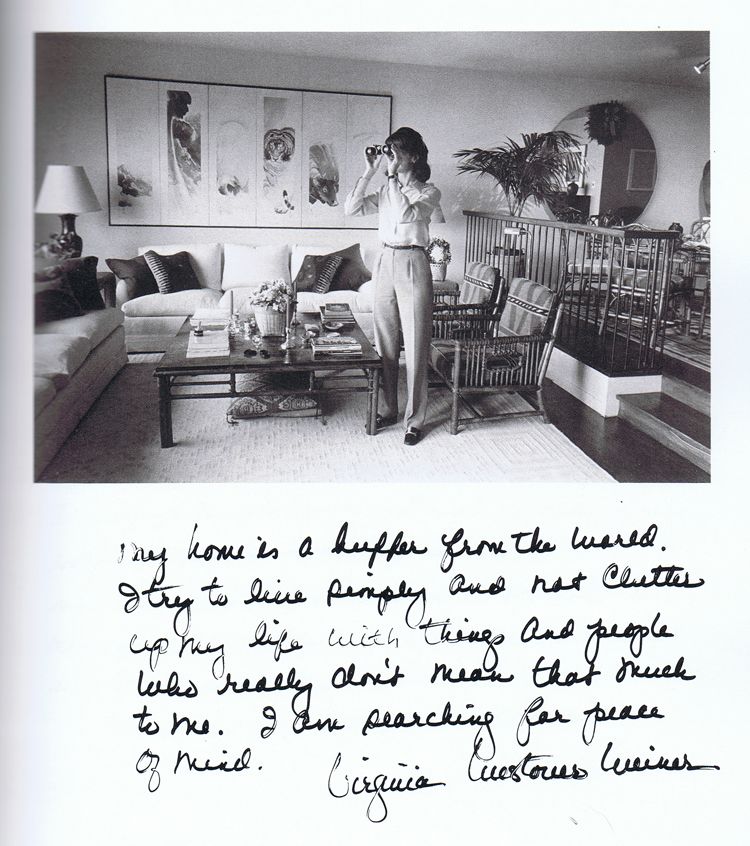
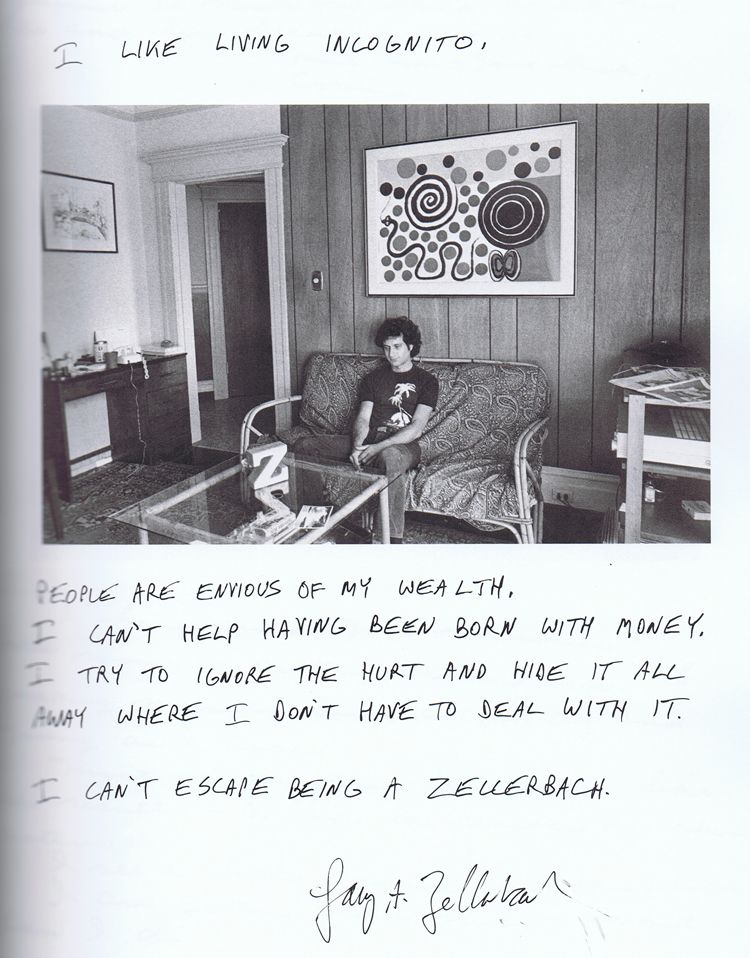
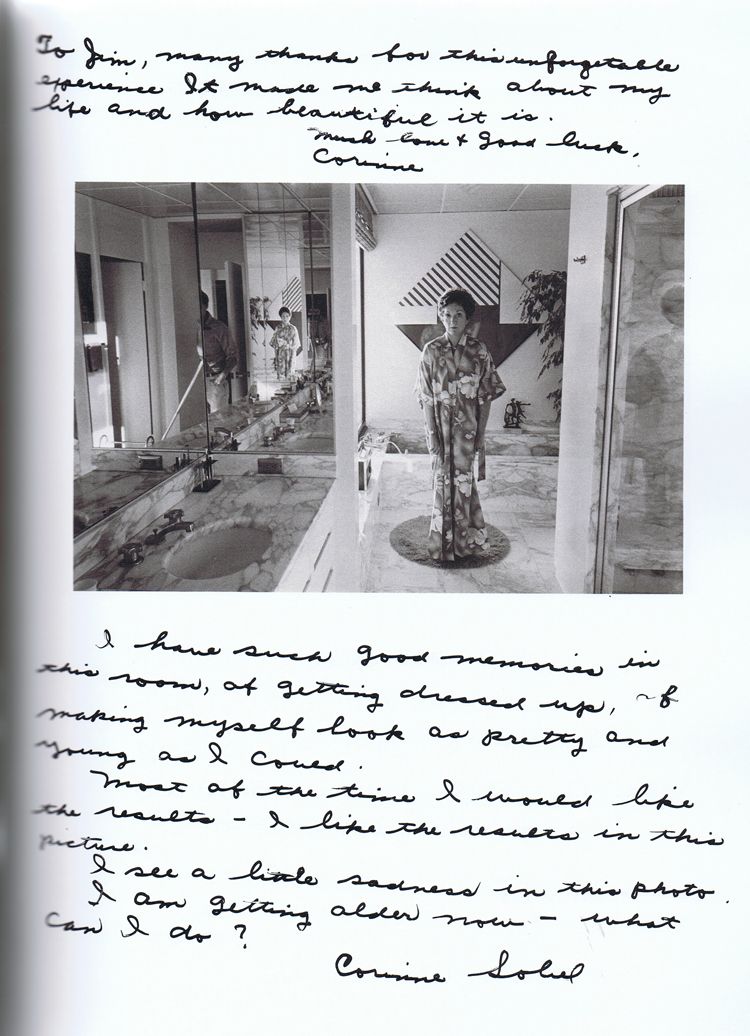
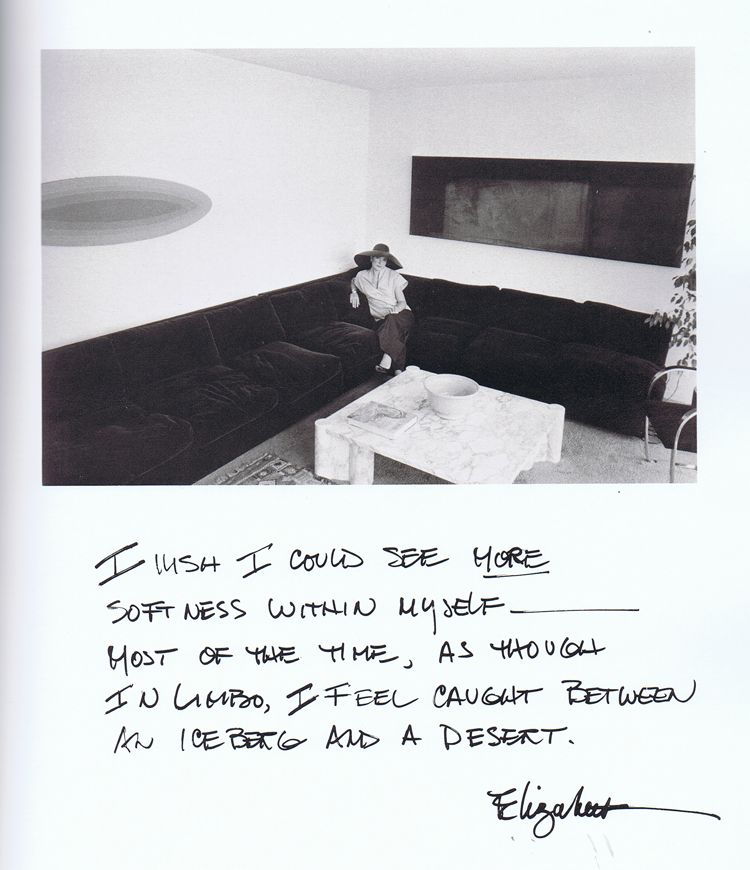
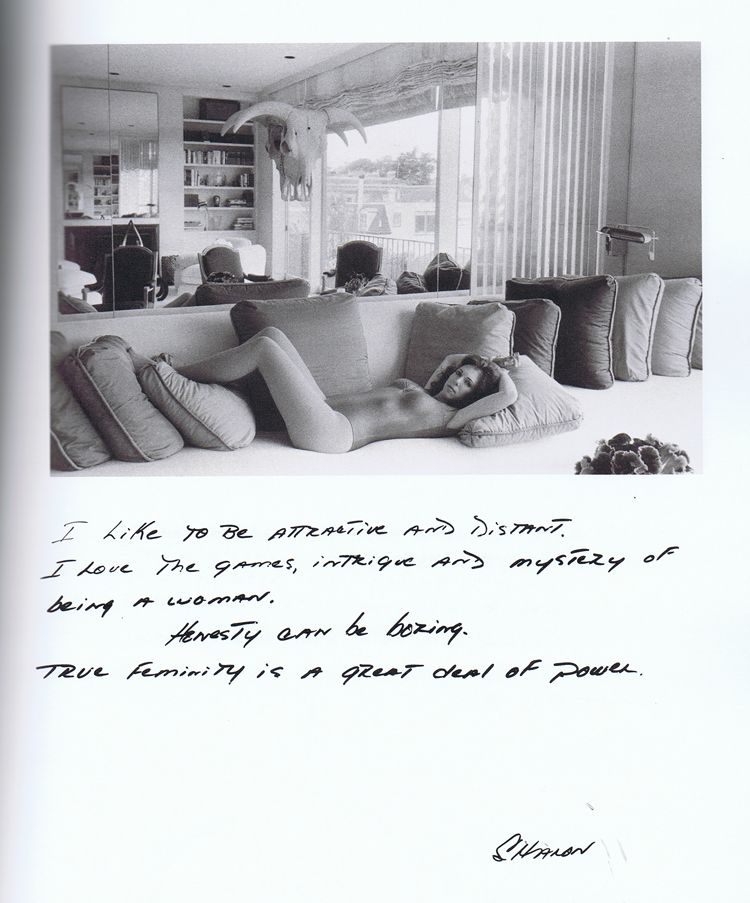
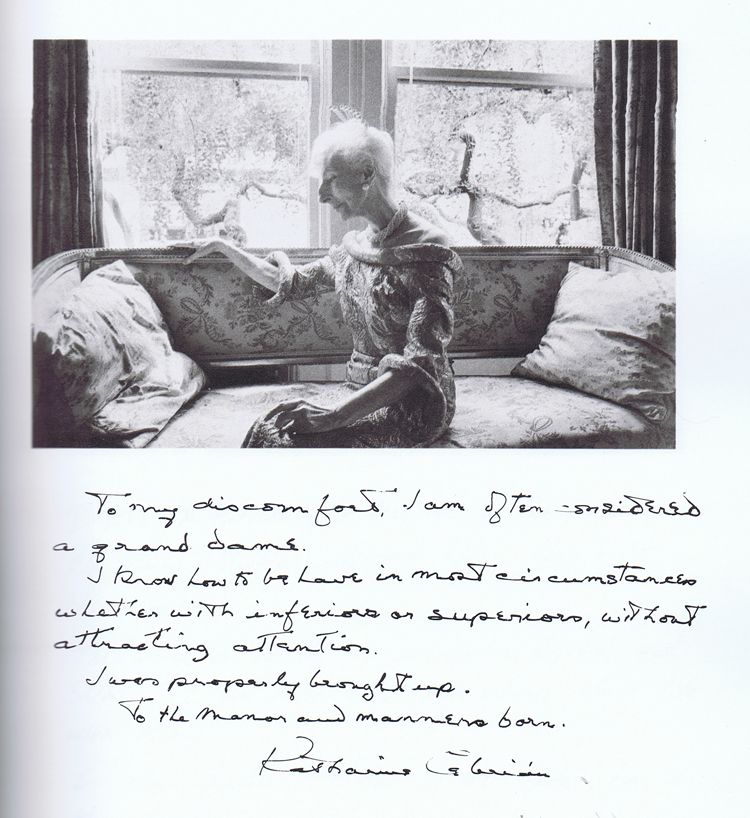
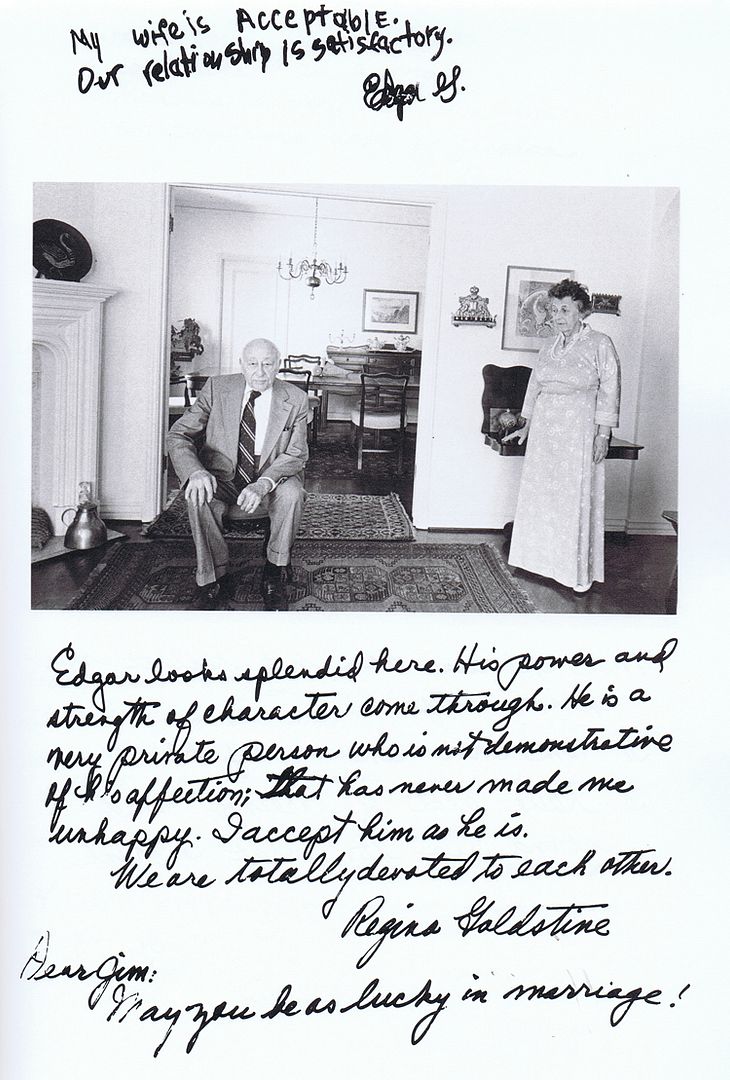
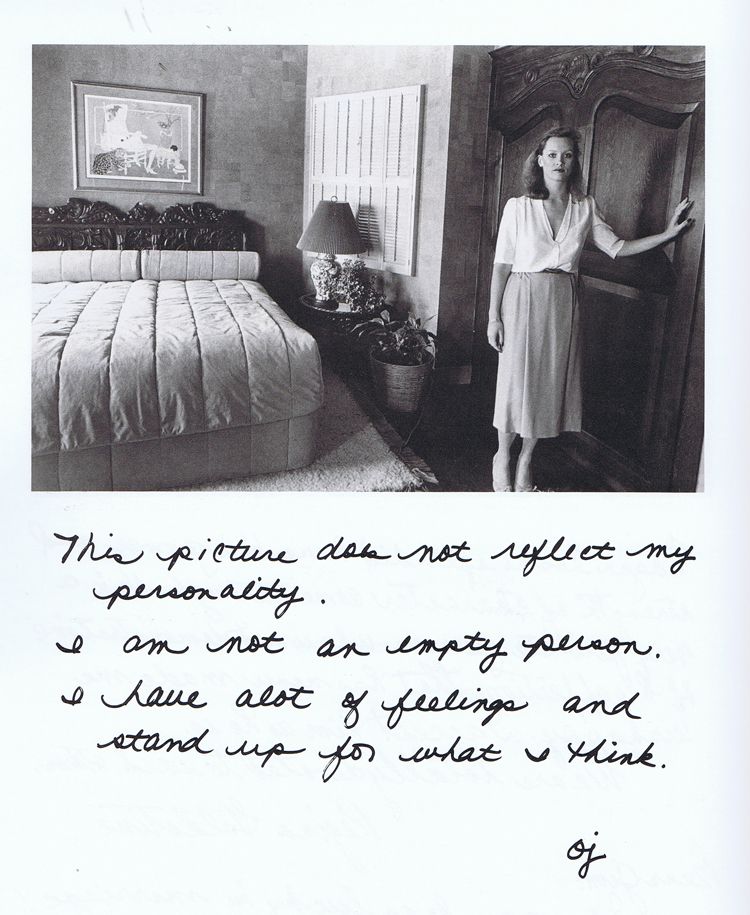
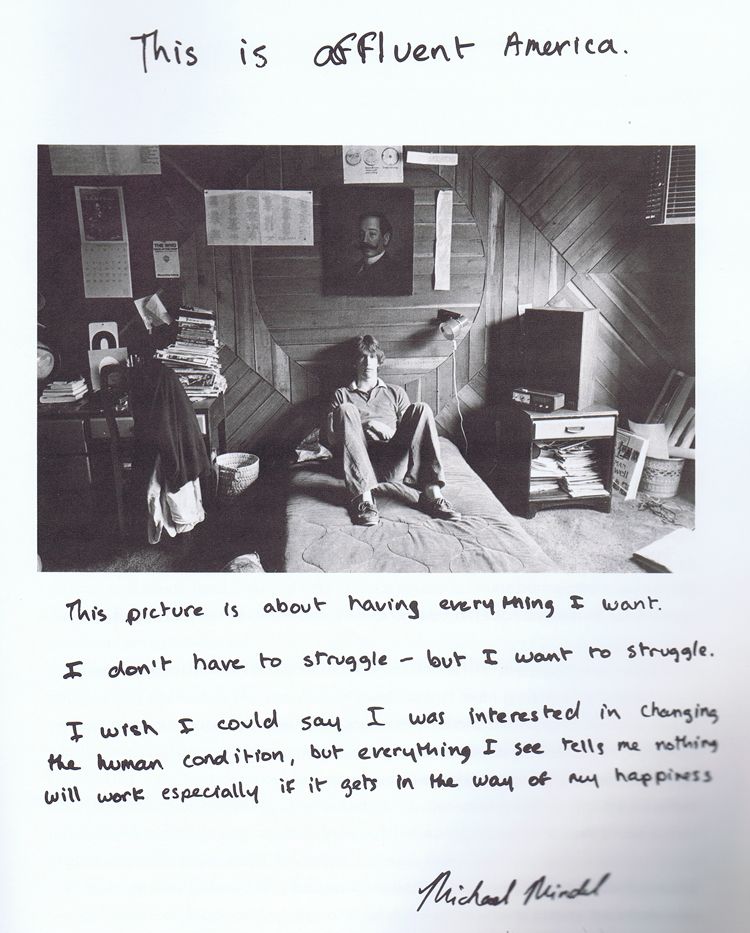
Jim Goldberg. Rich and Poor . New York: Random House, 1985.
. New York: Random House, 1985.
Labels: 1970s, 1980s, books, documentary photography, jim goldberg, rich and poor















